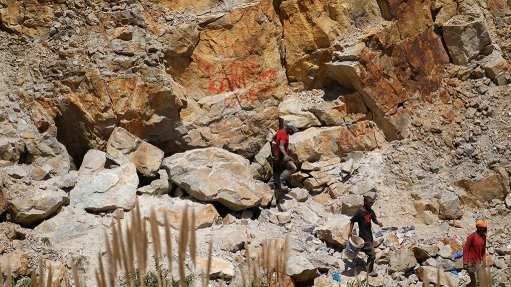
Photo by: Reuters
The South African government and the security cluster must do more to protect South Africans against the scourge of the zama zamas (illegal miners).
Today, we commemorate the Marikana massacre of 2012, where thirty-four miners were shot and killed by the South African Police Service (SAPS) during a wildcat strike at the Lonmin Platinum mine in Marikana, Rustenburg. We will be reminded of how the deceased workers lost their lives while striking to get access to better working conditions and other rights.
The Marikana strikers were workers legally employed by Lonmin.
In scandalous contrast, illegal zama zamas have been allowed to mine and steal our mineral wealth and sabotage our economy with impunity for over a decade. A menace threatening the South African socio-economic environment, they were given the chance to organise themselves into syndicates and strengthen their criminal networks without fear of arrest or prosecution.
During National Women’s Month, it took public outrage following the brutal gang rape of 8 South African models and film crew to finally jolt government and the security sector into action and arrest 130 zama zamas.
As we commemorate the Marikana tragedy, let us also remind government and the National Prosecuting Authority of South Africa of their duty to protect South Africans against crime, economic sabotage or otherwise.
· UASA demands that orphan dumped mines are rehabilitated by government, closed off and guarded to prevent illegal mining opportunities.
· Perpetrators whose criminal economic activities take food out of the mouths of others should be prosecuted accordingly, not only for trespassing.
· South Africans who knowingly benefit from such criminal activity should be slated as traitors and prosecuted accordingly.
Such criminals stand in the way of economic growth and a prosperous nation. The time is long overdue for politicians, the South African Police Service, and other law-enforcing entities to stand up for and protect the people they are paid to serve.
Issued by UASA Spokesperson Abigail Moyo